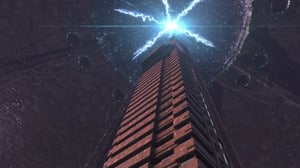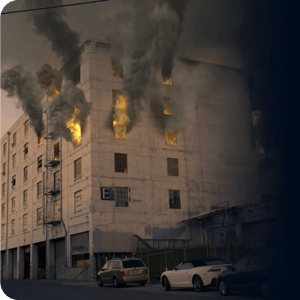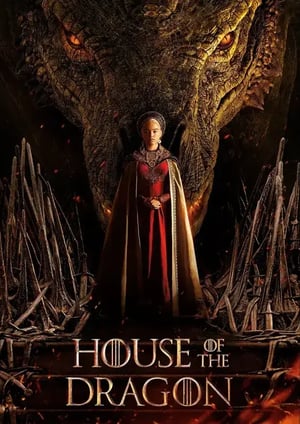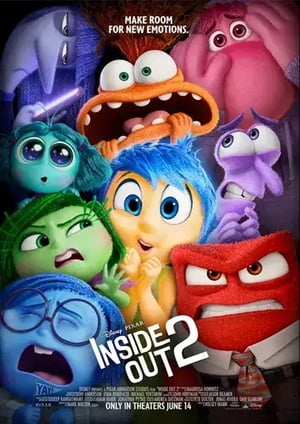
Digital Compositing Courses
Be part of the VFX industry as a compositor for film and TV with our specialise courses
Start your VFX compositing career and learn industry-relevant skills
CG Spectrum’s Nuke VFX training program ignites creativity and enhances technical skills for a successful career as a compositor in the film industry.
In just 12 months, students master rotoscoping, digital painting, keying, scripting, and lighting techniques used by leading VFX studios worldwide. With unparalleled mentorship from industry professionals, students gain invaluable insights and the skills needed to excel in VFX compositing.
CG Spectrum offers personalized mentorship from experienced VFX professionals who have worked at some of the world's renowned studios – helping you to get ready for a job in the entertainment industry.
Our flexible online platform allows for studying from anywhere. Join today to unlock your full potential in VFX compositing.

Explore All Digital Compositing Courses
Get studio-level training, master industry tools and workflows, and develop a demo reel that showcases your skills to employers with our digital compositing courses.

Essentials
Explore the art of seamlessly integrating live action footage with digital assets in this beginners course. Practice rotoscoping techniques and green screen keying, then build a simple VFX shot from scratch.
Essentials
Explore the art of seamlessly integrating live action footage with digital assets in this beginners course. Practice rotoscoping techniques and green screen keying, then build a simple VFX shot from scratch.

Foundations
Beginner to Intermediate 12 Months
This course prepares you creatively and technically for a career as a compositor. Learn advanced techniques from digital painting, color theory, keying, scripting and lighting techniques used by top VFX artists.
Foundations
Beginner to Intermediate 12 Months
This course prepares you creatively and technically for a career as a compositor. Learn advanced techniques from digital painting, color theory, keying, scripting and lighting techniques used by top VFX artists.
Need Help Deciding?
We know choosing the right course can be tough, but don’t worry—we’re here to help!Get in touch, and we’ll guide you toward the perfect course for your goals and budget.Get The Education Your Deserve

"I went from knowing nothing about FX, to receiving job offers within 6 months of study with CG Spectrum!
I was blown away by the level of personal interaction the 1-on-1 mentorship provides. Having a direct line to an industry veteran as my mentor has been an invaluable resource and has taken my rate of learning to the next level.

Kristian K | Visual Effects

"CG Spectrum is my ideal way of learning.
With mentors active in the industry keeping you on track with industry-proven skills and workflows, you know you're not wasting your time. You get what you put into this course and there isn't such thing as being too keen. I couldn't be happier with the progress and skills I've gained since starting."

Ben N | Visual Effects

"I’m not only learning the essentials of VFX but also key networking tips from my mentor.
I started CG Spectrum with no experience in visual effects. In my opinion, the education with CG Spectrum is the closest to giving me actual industry experience since I’m working alongside an industry vet while being taught the fundamentals of my trade. I can comfortably say I have more of a "peer to peer" relationship rather than "teacher to student", making it really easy to share my work and expect solid criticism."

Subhan A | Visual Effects

"Hands down the best decision I've made for my career.
The learning material and staff were great, and having an industry mentor was an invaluable asset that really helped me get my break in the VFX industry."

Alan R | Visual Effects

"The flexibility and online approach really worked for me.
Having a mentor who works in the industry facilitated both guidance and support in the weekly submissions. Their critiques guided my skill set and put me in front of the competition by helping me learn to troubleshoot from my mistakes. "

Vince B | Visual Effects

"My only regret is that I didn't do it sooner!
I found the experience to be very beneficial. My mentor helped me accelerate my learning with our weekly meetings. Once I completed the course, I was left with great portfolio pieces for my showreel and given free ongoing help from a Career Development Manager, who helped me polish my resume and LinkedIn profile to help kickstart my career. "

Kasia P | Visual Effects

"The CG Spectrum training solidified my skills using Unreal Engine.
Having used it briefly before, and feeling overwhelmed by how big the range is of what you can do using the engine, the training taught me the areas I would need for virtual production very well. I now feel confident with the skills I have gained."

Simran M | Real-Time 3D & Virtual Production

"CG Spectrum seemed too good to be true. Looking back, it was the best decision.
Every mentor and staff member has been so hands-on and directly involved in my learning. Co-Directors of top box office movies and supervisors of major Netflix TV shows are giving me feedback on my projects. Students also have access to a strong community, and an awesome career class to prepare you for your dream job."

Stephanie S | 3D Modeling
Join Our Alumni at World Class Studios
Our mission is to train highly skilled graduates ensuring they are prepared for a successful career. Take the first step towards joining our alumni at world-class studios creating work that inspires.















